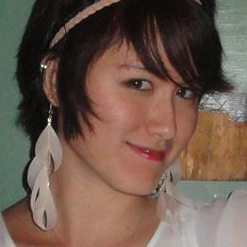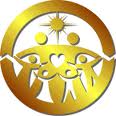
Small Gods, by Terry Pratchett, is one of my personal favorites. I have read this book several times over and every time I enjoy it even more. It takes place in Discworld, a universe created by Terry Pratchett that is the setting for nearly 40 books. There are some characters that appear in several novels as part of a series, but Brutha in Small Gods is not one of those. He appears only in this novel, as the Chosen One of the Great God Om. His mission is to keep the Great God Om alive and reform the Omnian religion.
The Summary
As a religious person, this book was hard to read the first time around. I actually had to put it down after the first twenty pages and wait a month before I could pick it back up again. It is first and foremost a fantasy, but as a close second, it is also a satire. This book does not just point out the problems that can arise in Religion and Faith – it jabs its finger into the holes and makes them as big as possible. It then deals with solving those problems.
Brutha begins as a cabbage farmer, at the bottom of the religious hierarchy. The Great God Om begins as a turtle, falling from the sky because he was dropped by an Eagle that wanted to crack open his shell and eat him. It turns out that a god gets his power from the faith of his believers. If the believers start believing in the religion more than they believe in the god, the god begins to fade, and people like Vorbis, the head of the Omnian religion, gain more power. Vorbis’ main problem is that he is paying too much attention to the voices inside his own head, thinking that they are actually the voice of Om, which they are not.
Throughout the story, Small Gods deals with the ideas of the messianic figure, the crucifixion of the messianic figure, real faith versus false faith, abuse of religion, how philosophy affects religion, how knowledge can threaten empty faith and force it to turn into a true faith, and the afterlife.
Reading Recommendations
This book is best read in groups, with plenty of opportunity for discussion. Because religion and faith can be deeply personal, any story that pokes at the holes and failings of religion and faith is hard to read on your own. You have get over yourself a little bit first, and if you have a group of people in the same situation with you, it’s easier to talk through whatever the issues are. Talking about the problems and solutions of faith and religion is so important to a life of faith. You have to face the hard questions sometimes. Why not do it with a fantasy book and some good friends?
 Small Gods is 384 pages long, so if you read about 50 pages a week, you can have it finished in 8 weeks.
Small Gods is 384 pages long, so if you read about 50 pages a week, you can have it finished in 8 weeks.
Discussion Questions
Here are some questions that you could ask at each meeting that should apply to just about any part of this book. Hopefully, these will generate not only conversation, but also more questions voiced by those in your group.
- What are Brutha’s intentions at this point? How are his intentions reflected in his actions?
- How do you relate to Brutha? What do you have in common with him? How would you handle the situation he’s in?
- What are Om’s intentions at this point? How are his intentions reflected in his actions?
- How do you relate to Om? What do you have in common with him? How would you handle the situation he’s in?
- What are Vorbis’ intentions at this point? How are his intentions reflected in his actions?
- How do you relate to Vorbis? What do you have in common with him? How would you handle the situation he’s in?
- What effect has this story had on your faith so far? Why? How so?
- When your faith is challenged it’s easy to feel powerless and attacked, but you can get your power back by having a response to that challenge. What is your response to how this story is effecting your faith?
- How has your faith been strengthened by the process of reading and discussing this book.
If you’re having trouble drawing more of an answer out of someone, you can always use the one-word question “why”. This will usually prompt some kind of elaboration. Also, specific questions help generate specific answers, while general questions will generate general answers. Sometimes specific answers are good, and other times general answers are good. Be conscious of what kind of discussion you want to have with your group.
For this book in particular, I would highly recommend that some type of Youth Pastor or Elder participate to help answer and respond to any questions or concerns that may come up.
This article was first published in UC Magazine and has been republished with permission.












